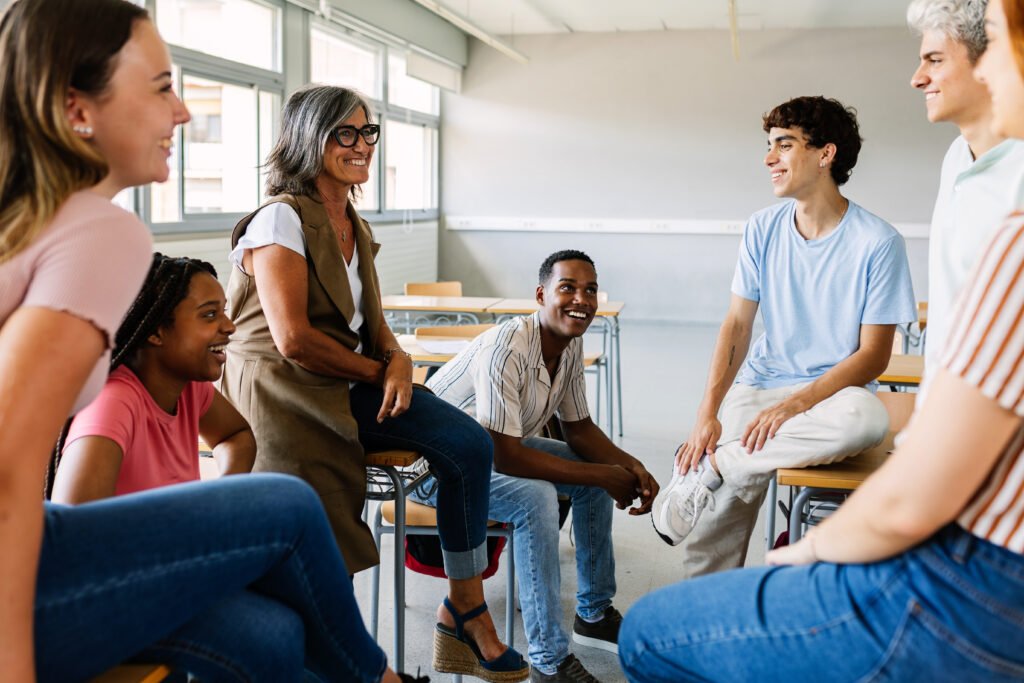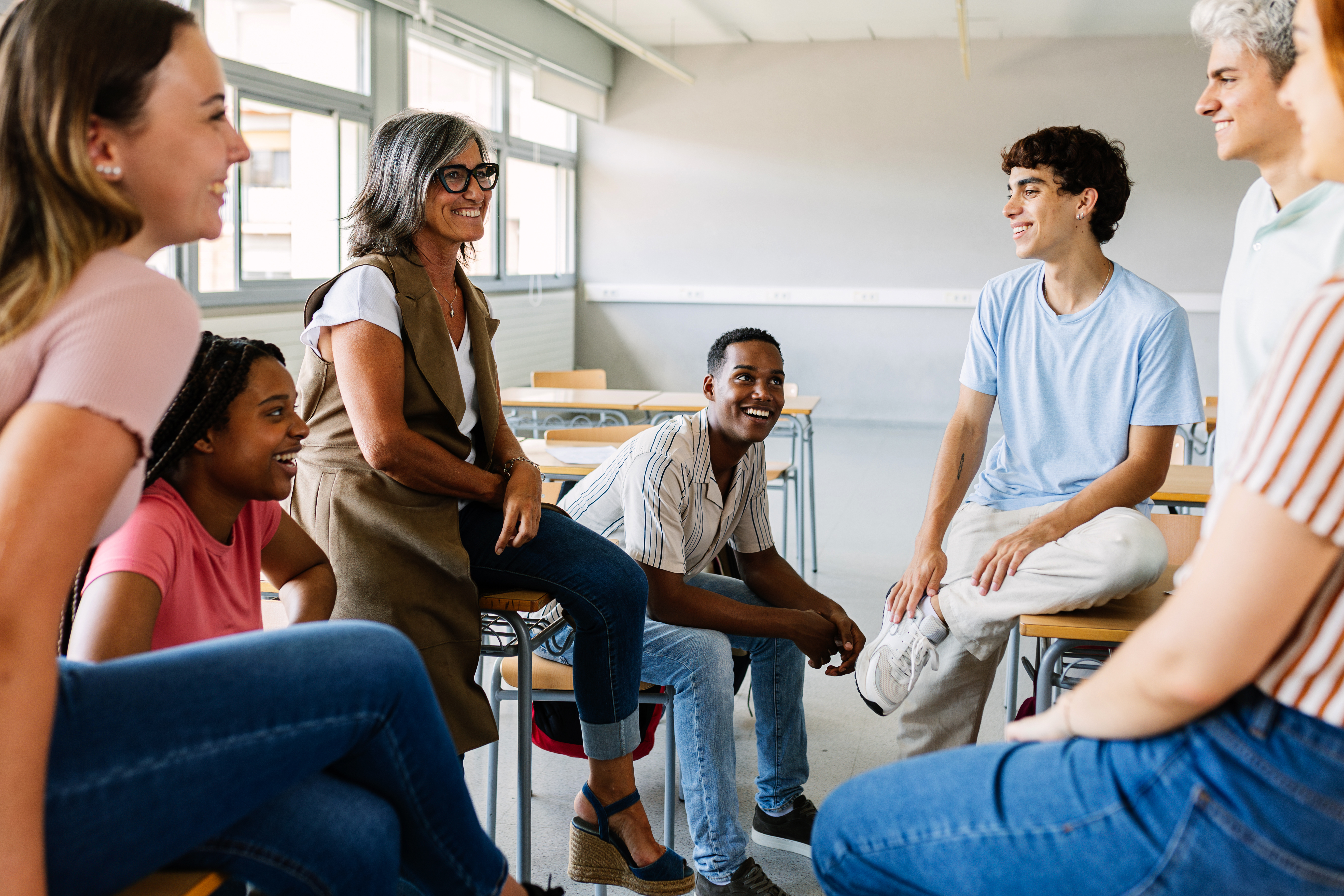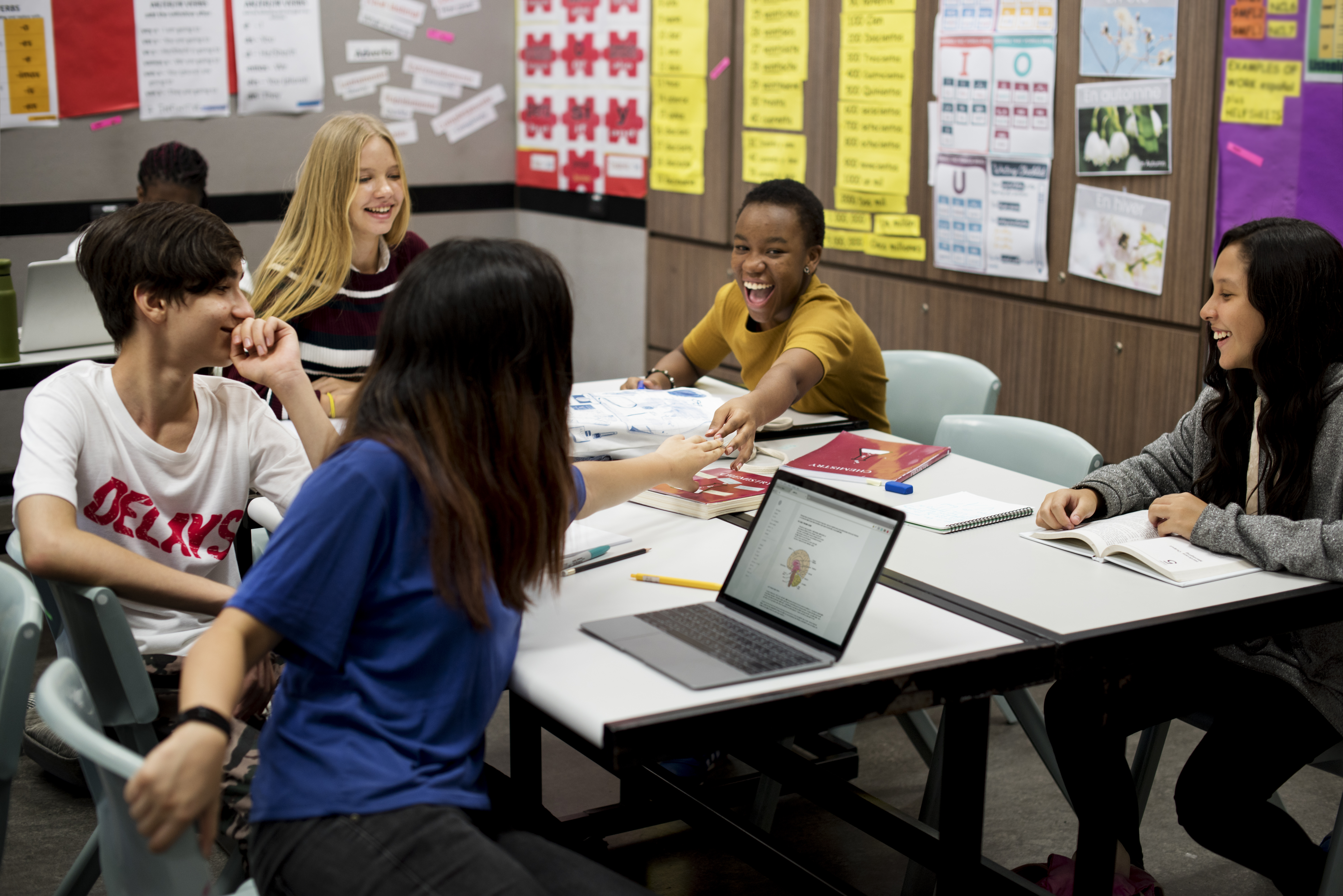
Young group of high school students talking with mature teacher in classroom. Education concept
Empowering Gifted Students: Top Strategies for Educators to Foster Resilience and Confidence
Gifted students often shine brightly in academics, yet many silently struggle with emotional hurdles that dim their potential. You know the challenges: anxiety, perfectionism, and the relentless quest for approval. But what if you could guide them toward resilience and confidence with just a few strategic tweaks? Imagine transforming their world with practical tools that empower them to thrive both in the classroom and beyond. Ready to make a real difference? Let’s explore the top strategies that will support gifted youth in unlocking their true potential. Learn more about building resilience in gifted students.
Building Emotional Resilience

Building emotional resilience in gifted students is crucial for their long-term success. This section dives into the complexities of emotional triggers and offers strategies for anxiety management while promoting self-compassion.
Understanding Emotional Triggers
Emotional triggers are stimuli that provoke strong emotional reactions. For gifted students, these triggers can range from academic pressure to social dynamics. Recognizing these triggers helps in developing strategies to manage them.
Understanding emotional triggers is the first step to resilience. Educators can encourage students to keep journals to identify patterns in their emotional responses. This self-awareness fosters better emotional control.
According to Psychology Perspective, recognizing these patterns empowers students to manage their emotions proactively. This understanding is key to developing resilience.
By acknowledging triggers, students can learn to respond rather than react. This shift in perspective is essential for maintaining emotional equilibrium and fostering a resilient mindset.
Strategies for Managing Anxiety
Managing anxiety is critical for gifted students, who often face intense academic and social pressures. Here are some strategies:
Mindfulness Practices: Introduce breathing exercises and meditation to help students focus and relax.
Structured Routines: Consistent schedules provide a sense of security, reducing anxiety about the unknown.
Gradual Exposure: Slowly expose students to anxiety-inducing situations in a controlled environment to build tolerance.
According to Kaltman Law, these methods can significantly reduce anxiety levels in gifted children, allowing them to focus more effectively on their studies.
Encouraging students to develop a toolkit of anxiety management techniques can empower them to face challenges confidently. This proactive approach is a cornerstone of emotional resilience.
Encouraging Self-Compassion
Self-compassion is the practice of being kind to oneself in times of failure or difficulty. For gifted students, who often set high standards, self-compassion can be transformative.
Educators play a vital role in modeling self-compassion. By sharing their own experiences of overcoming setbacks, they can illustrate the importance of self-kindness.
As highlighted in NAGC, self-compassion helps reduce the feelings of inadequacy that can accompany high expectations. This mindset fosters resilience.
Encouraging students to practice self-compassion can lead to increased self-esteem and a more balanced perspective on success and failure.
Boosting Confidence in Gifted Students

Confidence is a critical component of success for gifted students. This section explores ways to celebrate achievements, nurture a growth mindset, and leverage high-performance coaching.
Celebrating Small Wins
Celebrating small wins is an effective way to boost confidence. Recognizing incremental progress helps students appreciate their efforts and build self-belief.
Regular recognition of achievements, no matter how small, can motivate students to continue striving for excellence. This practice nurtures a positive self-image and reinforces confidence.
Gifted students often overlook minor accomplishments in pursuit of larger goals. Educators can help by setting interim milestones and celebrating each one.
According to Curriculum Louisiana, acknowledging small victories helps maintain momentum and encourages a continuous pursuit of excellence.
Developing a Growth Mindset
A growth mindset is the belief that abilities can be developed through dedication and effort. This mindset is essential for fostering resilience and confidence in gifted students.
Educators can encourage a growth mindset by praising effort over innate talent. This approach shifts the focus from fixed ability to personal development.
According to research, students with a growth mindset tend to embrace challenges and persist through difficulties. This attitude is pivotal for academic and personal success.
By promoting a growth mindset, educators empower students to view setbacks as opportunities for learning, fostering resilience and confidence.
The Role of High-Performance Coaching
High-performance coaching offers personalized guidance to gifted students, helping them reach their full potential. This approach combines emotional support with skill development.
Coaches work with students to identify goals, develop strategies, and track progress. This structured support can significantly enhance confidence and performance.
As highlighted in Psychology Perspective, high-performance coaching equips students with tools to manage stress and optimize their talents.
By integrating coaching into educational strategies, educators can provide targeted support that nurtures both academic success and personal growth.
Effective Support Systems

Creating effective support systems is essential for fostering resilience and confidence in gifted students. This section covers emotional intelligence, safe learning environments, and family partnerships.
Fostering Emotional Intelligence
Emotional intelligence involves recognizing, understanding, and managing one’s emotions. For gifted students, developing this skill is crucial for resilience and confidence.
Educators can nurture emotional intelligence by teaching empathy, active listening, and self-awareness. Role-playing exercises can help students practice these skills in a supportive setting.
According to Kaltman Law, emotional intelligence is a key predictor of success in both academic and personal spheres.
By fostering emotional intelligence, educators equip students with essential tools for navigating complex social and emotional landscapes.
Creating a Safe Learning Environment
A safe learning environment is foundational for gifted students to explore their potential. This environment encourages risk-taking, creativity, and self-expression.
Teachers can create a supportive atmosphere by establishing clear expectations and promoting mutual respect. Open communication is key to addressing concerns and fostering trust.
As noted by NAGC, a safe learning space allows students to thrive academically and emotionally.
By prioritizing safety and support, educators create an environment where gifted students feel valued and empowered to pursue their goals.
Partnering with Families for Success
Family partnerships are vital for supporting gifted students. Collaboration between educators and families ensures consistent support across academic and personal domains.
Communication is crucial for effective partnerships. Regular updates and feedback sessions help align educational goals with family expectations.
According to Curriculum Louisiana, family involvement enhances student outcomes and reinforces resilience and confidence.
By partnering with families, educators can create a cohesive support network that nurtures the holistic development of gifted students.

A certified Heal Your Life® Coach with 20+ years in education and emotional development. Supports gifted teens in navigating anxiety, perfectionism, and identity challenges, while equipping parents with practical tools for lasting transformation. Sessions blend emotional healing, mindset mastery, and strategic empowerment.



